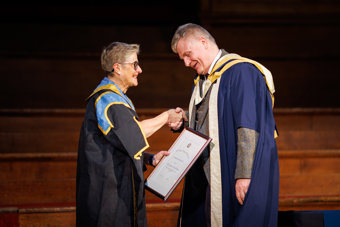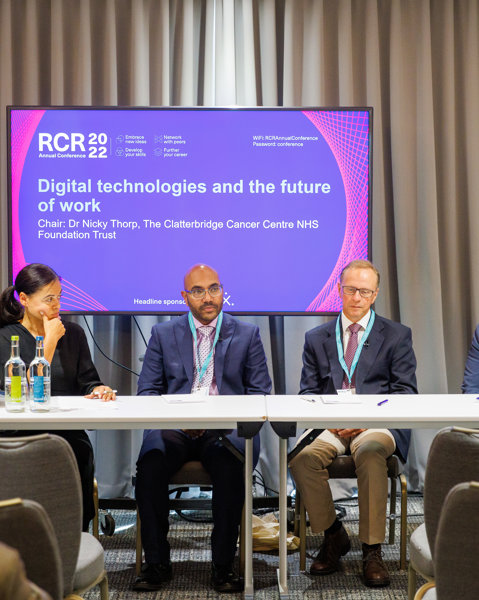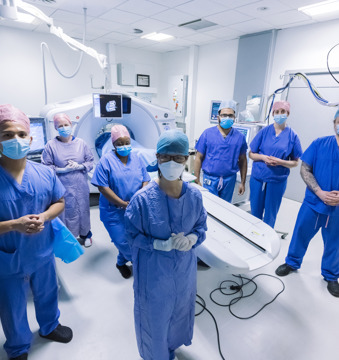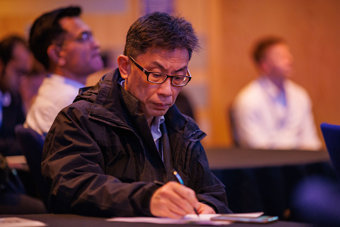

Career development
Our expert advice will guide you through all stages of your career, from choosing the right specialty, to offering support through professional networks.
The RCR SAS Doctors Network
Sign up to our SAS professional network and be part of the growing community today.
SAS Professional Network

Understanding career stages
Clinical radiology and clinical oncology are exciting, rapidly advancing specialties within medicine. Explore the stages of each speciality, from choosing a pathway at school to seeking Foundation training as a trainee.
Being a consultant
Support and resources including policy and practical help for continuing professional development (CPD), revalidation activities and championing the faculties policy committees.
12
Explore our Trainee Hub
Welcome to our Trainee Hub, where you'll find key links, information and news. Trainees are incredibly important to us and we hope you find everything you need here to support you in your training.
To the Trainee Hub
Find out more
Explore career development areas including the funding options available to clinical oncologists and clinical radiologists, the recruitment and training schemes offered and professional networks accessible.




Awards & honours
